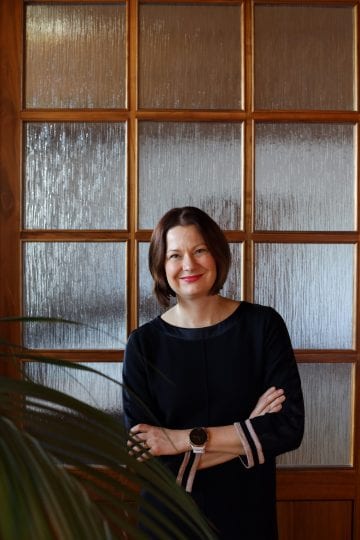Sustainability as the policy framework

Minna Arve,
Mayor,
City of Turku,
Finland
We have truly lived through extraordinary times for over a year now. Although practically the whole world has had to concentrate on fighting the pandemic, the fundamental challenge of the whole humankind has not changed: climate change and the sustainability of our planet.
In 2018, the City Council of Turku decided that the city will be carbon neutral by year 2029, when Turku will celebrate its 800th anniversary. By now we have already halved our emissions from the level of 1990, despite rapid economic growth and population increase. Successful climate action has increased our confidence that we can do even much more and we have actively widened our perspective to full-scale sustainable development.
Last year the City of Turku conducted a Voluntary Local Review of the UN Sustainable Development Goals. We have worked hard to engage the citizens, the companies and local communities in finding positive, effective solutions as well long term as in common choices made in everyday life. Through SDG’s we can communicate with citizens and companies and give them answers to their questions. We can offer them accountability and possibilities to take part.
People long for a sign of a brighter future around the corner. All glimpses of good, of progression, of growth, jobs and stability are welcomed.
We can make good of these times by bringing forward actions of new innovations and promises of a more sustainable future. We can make the most of it by engaging as many citizens as possible so that they are aware that positive things are happening all the time, and the more they are supported, the faster they become part of our everyday life.
It is clear that strategies and roadmaps alone are not enough. We need legislation and we need resources.
Above all, we need implementation. The burning need for implementation is why cities and local authorities are so important in fighting climate change. At the end of the day, it is in cities where people live their lives and make their choices, it is in cities where the consequences of political decisions, or lack of decisions, is seen.
The need for good and skillful implementation is growing ever more important, because as we move along, the low-hanging fruits, the easy decisions are starting to become scarce. Ahead we have the decisions that affect the everyday life of all citizens and can also be decisions which divide the public opinion.
It is important to build a bridge between action and consequence. The justification for effective sustainability policy comes from the good consequences people see around them. On the other hand, the consequences of inaction are as visible.
The Archipelago Sea in front of Turku is a unique area on a global scale. The sea is characterized by 40 000 islands, sharing an extremely vulnerable nature. It is difficult to accept, that the state of the Archipelago Sea has plummeted during the last 50 years, because of human action.
The Archipelago Sea is the only HELCOM hotspot left in Finland. In the whole Baltic Sea region 75 % of hotspots have been cleaned up since 1992. In 2010 the Finnish government set a goal to remove the Archipelago Sea from the hotspot list by 2020. We did not succeed. In fact, the state of the sea has deteriorated.
Minister of the Environment and Climate Change Krista Mikkonen renewed this goal a few months ago, of which I am very pleased. The Archipelago Sea has not got time to wait for better times, but action must be taken immediately. The sea will survive, if we work decisively, consistently, and tirelessly in broad co-operation.
Deeper co-operation between cities and national governments is needed in sustainable development altogether. As more and more cities raise the level of ambition in sustainability and for instance go through the process of Voluntary Local Review we start to have a common framework, a common language.
At the local level we need the help of national actors to achieve our goals, and the government needs the cities to achieve theirs. After all, the goals are common. Through a common framework and common objectives we can dramatically raise the effectiveness of our policy.
At the end of the day, we are working for the good of our planet and the future generations. Rejecting sustainable development as a framework is not a viable option. Instead, sustainable development offers countless business opportunities, increasing standard of living, scientific progress and enjoyable surroundings.
Sustainability will be the guiding framework for policy at local, national and international level for years to come. Pace of different actors may differ, but the direction is same.
Expert article 2856
> Back to Baltic Rim Economies 1/2021
To receive the Baltic Rim Economies review free of charge, you may register to the mailing list.
The review is published 4-6 times a year.
